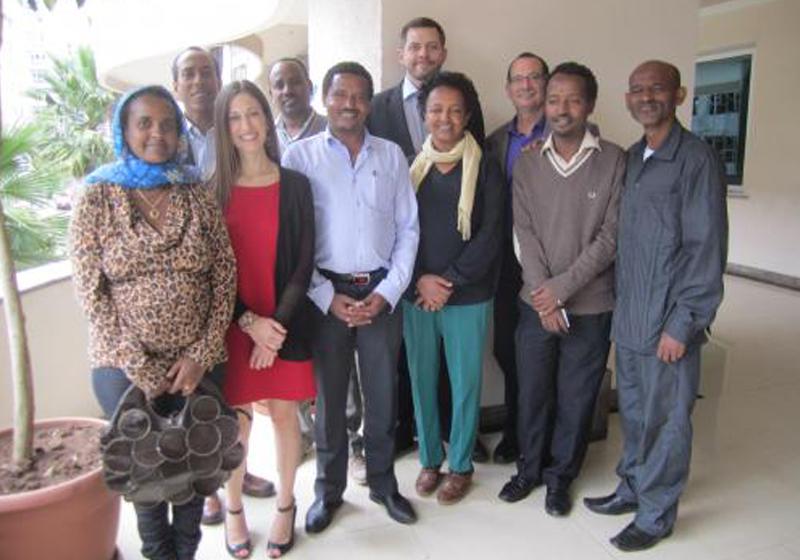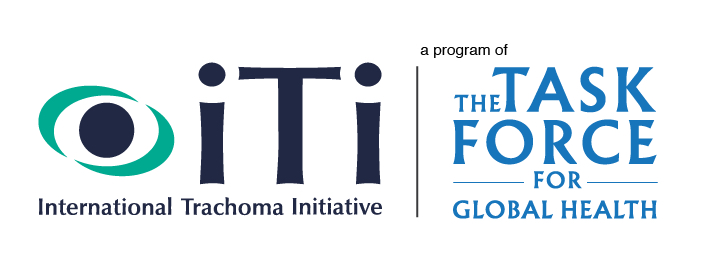
Helping National Trachoma Program Coordinators Flex Leadership Muscles
CAPETOWN, South Africa - Leadership can be tricky; it takes knowledge, experience and learning from mistakes, and it’s not always intuitive. Sometimes it means not talking and letting others express an opinion.
“Before, I was doing all the work by myself,” said Dr. Khaled Amer, Egypt’s Prevention of Blindness Coordinator. “But now I’ll ask other workers to be engaged and also provide feedback. When there is an issue, I’ll encourage them to have an opinion and not just obey my orders.”
Amer is one of several senior health officials who participated in a recent leadership training workshop conducted by the Kilimanjaro Centre for Community Ophthalmology (KCCO). Based in Cape Town, South Africa, KCCO offers leadership and management training to national coordinators to address issues related totrachoma and neglected tropical diseases (NTDs) as well as other blindness prevention programs. Coordinators from Egypt, Pakistan, Sudan, Uganda, Zambia, and Zimbabwe were trained this year in Cape Town, in a workshop funded by the International Trachoma Initiative. Last year, KCCO trained coordinators in Kenya, Malawi, Mozambique, Nigeria and Tanzania. A leadership training was conducted in Ethiopia last week as well.
KCCO Director Dr. Paul Courtright has worked for years training eye health professionals in Africa. He facilitates leadership training, along with his wife, Dr. Susan Lewallen, and Chad MacArthur, a global health consultant. Courtright said that even though successful trachoma programs have good leaders, he had noticed that more leadership training was needed in order to reach the 2020 elimination goal for blinding trachoma. “We have a time-limited challenge ahead of us to eliminate trachoma,” he said. “Unless we use our human resources in the most efficient fashion, we won’t meet our objectives.”
Lewallen, also with KCCO, said the leadership workshop is designed to help individuals understand their own leadership style and a leader’s role amongst staff and partners. “The participants take on what they can achieve as leaders – it’s a very personal process for them. The ultimate test is when they go back to their work environment. While it’s sometimes difficult to quantify how this training improves their skills, we’re involved with these participants in other working scenarios so we’re able to observe their progress.”
The goal is to help national coordinators learn how to assess the NTD context in their country and be more effective. They learn how to plan, manage, and implement programs, and they learn to appreciate that different health systems operate in their own unique ways. They also learn how to delegate tasks, build and maintain partnerships, and guide partners who want to help, but usually on their own terms. For example, most donors require data to show that their donations are having an impact. Collecting this data requires national health officials in endemic countries to navigate various reporting processes and bureaucracies to do the work.
The workshop format is interactive, with participants learning through the presentation of case studies, Courtright said. One unit focuses on how responsibilities differ between managers and leaders. “Just looking at PowerPoint slides is not enough,” Courtright said. “Participants need to consider their own work environment. This allows them to understand where they are along a trajectory and how they can improve it.”
Teddy Sokesi, from Zambia’s Ministry of Health, was grateful for the opportunity to attend the workshop, “It was a very important training for me. This is a new program for Zambia and it came at the right time. The capacity of Zambia’s NTD unit is very small, only two people – the Deputy Director and myself – so it’s important to be focused and strategic in accomplishing tasks. This workshop will help me prioritize how tasks can be done.”
KCCO consultant MacArthur explained: “The workshop enables participants to make more time for themselves to be strategic leaders, which means letting other people manage the day to day obstacles. The real outcome is what they can act upon – each participant has different leadership skills such as delegation or conflict resolution.”
The training is for men and women. Dr. Balgesa Elkheir Elshafie from Sudan’s Ministry of Health, said that her participation “will give me the confidence, even as a woman, that I can perform leadership actives as well as a man because now I have a solid foundation of what it means to be a leader.”
No single person, organization, or government can eliminate trachoma by itself. It takes many partners, donors, researchers, and NGOs working together with Ministry of Health officials, who must take leadership of programs to eliminate disease in their countries. However, leadership skills must be learned, and often the countries do not have the resources to conduct leadership training.
“Leadership is a science,” said Amer. “The answers are all around you, but you need help pointing them out.” He added that it’s important to stay focused on the goal, and not be distracted by small issues.

